Reading readiness Alphabet Worksheets for Ages 5-7
7 filtered results
-
From - To
Discover our engaging Reading Readiness Alphabet Worksheets specially designed for children aged 5-7. These fun, interactive worksheets nurture early literacy skills by introducing letters and their sounds through playful activities. Kids will enhance their reading readiness by tracing, identifying, and matching letters while building confidence in their abilities. Our worksheets promote fine motor skills and are aligned with age-appropriate developmental milestones. Ideal for both parents and teachers, these resources create a fun-filled learning experience that sets a strong foundation for future reading success. Unlock your child's potential and make learning the alphabet an exciting adventure with our thoughtfully crafted activities!
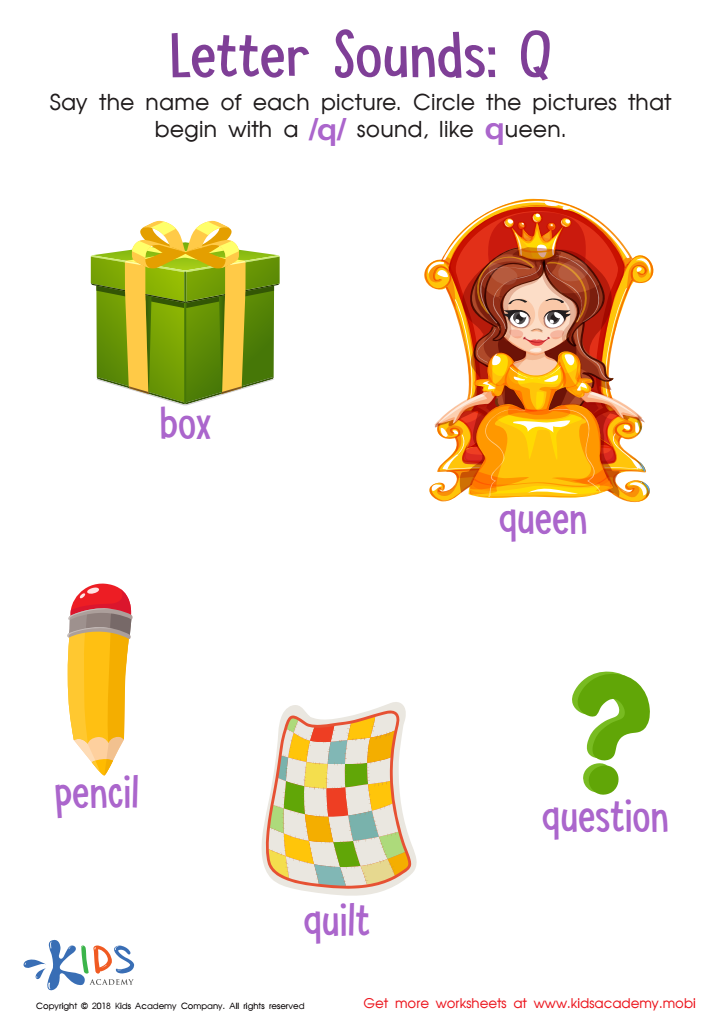

Letter Q Sounds Worksheet
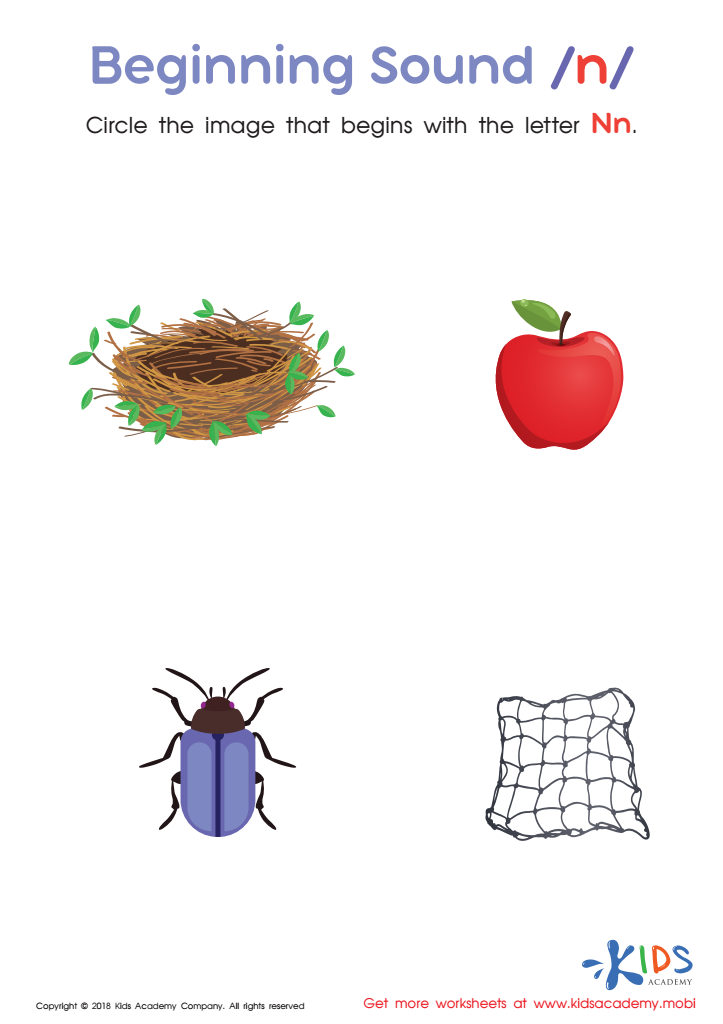

Beginning Sound «n» Worksheet
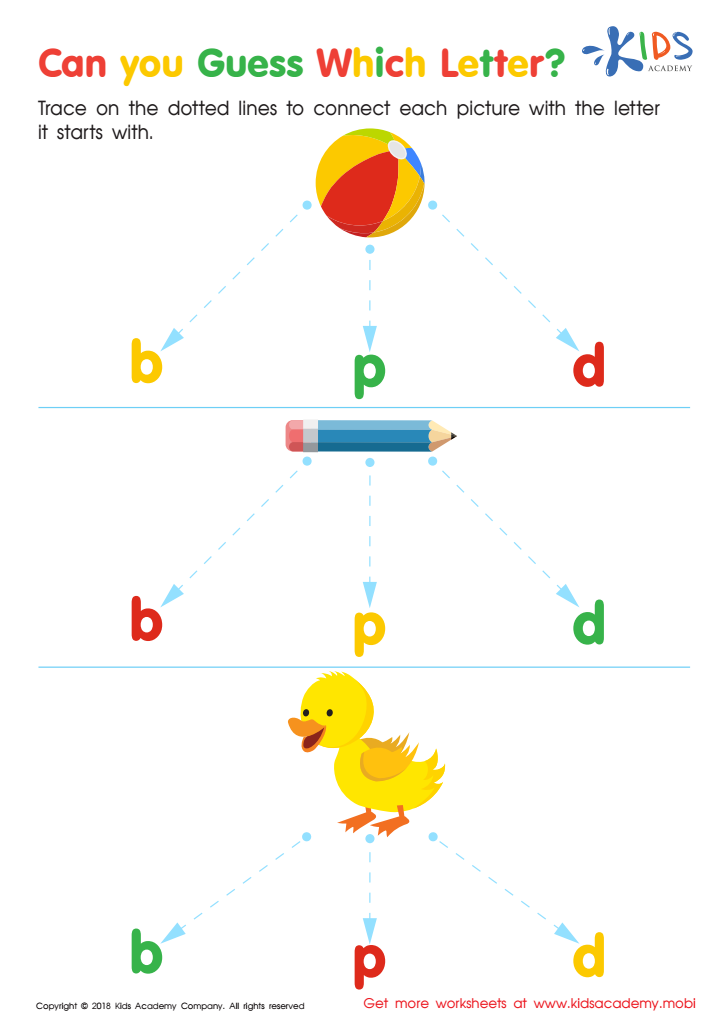

Can you Guess Which Letter? Worksheet
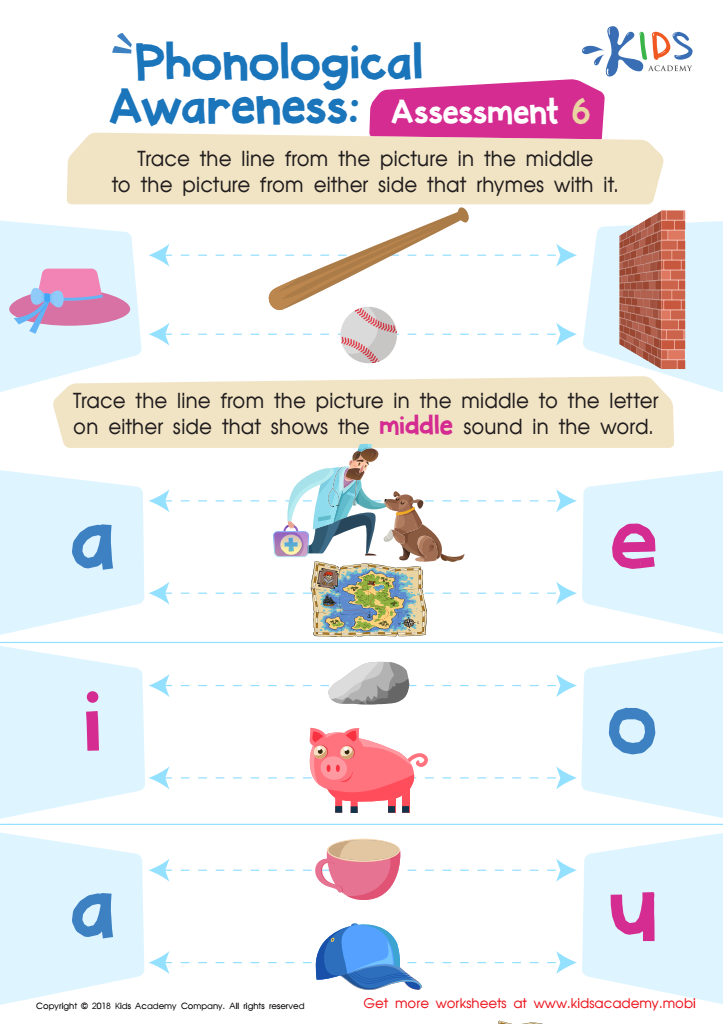

Phonological Awareness: Assessment 6 Worksheet
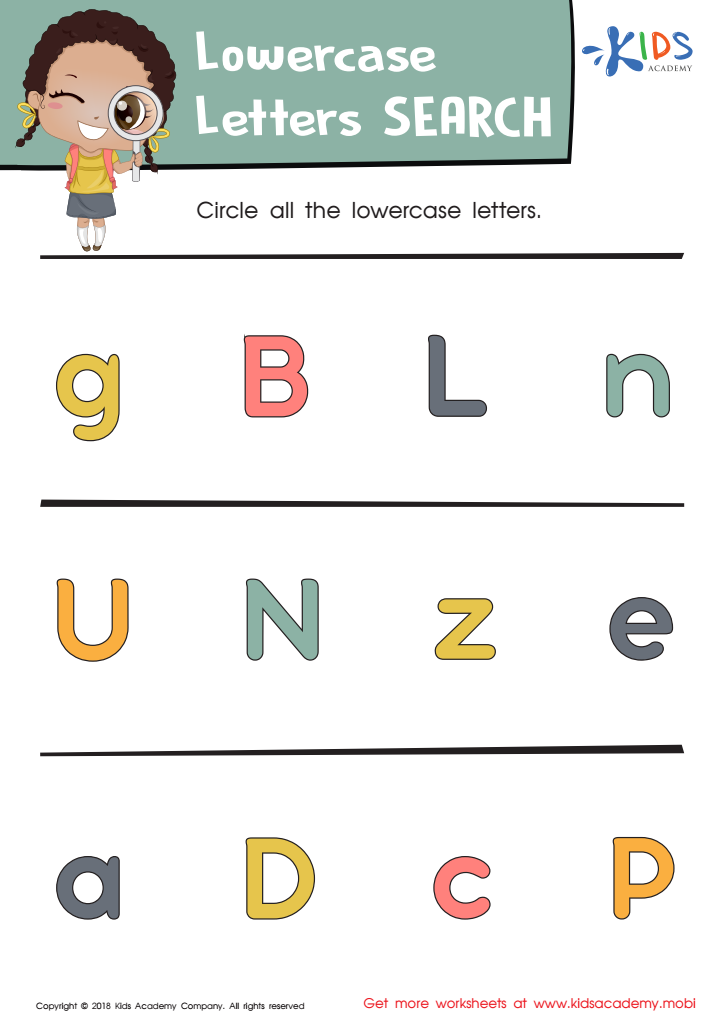

Lowercase Letters Search: Assessment Worksheet


Phonological Awareness: Assessment 1 Worksheet
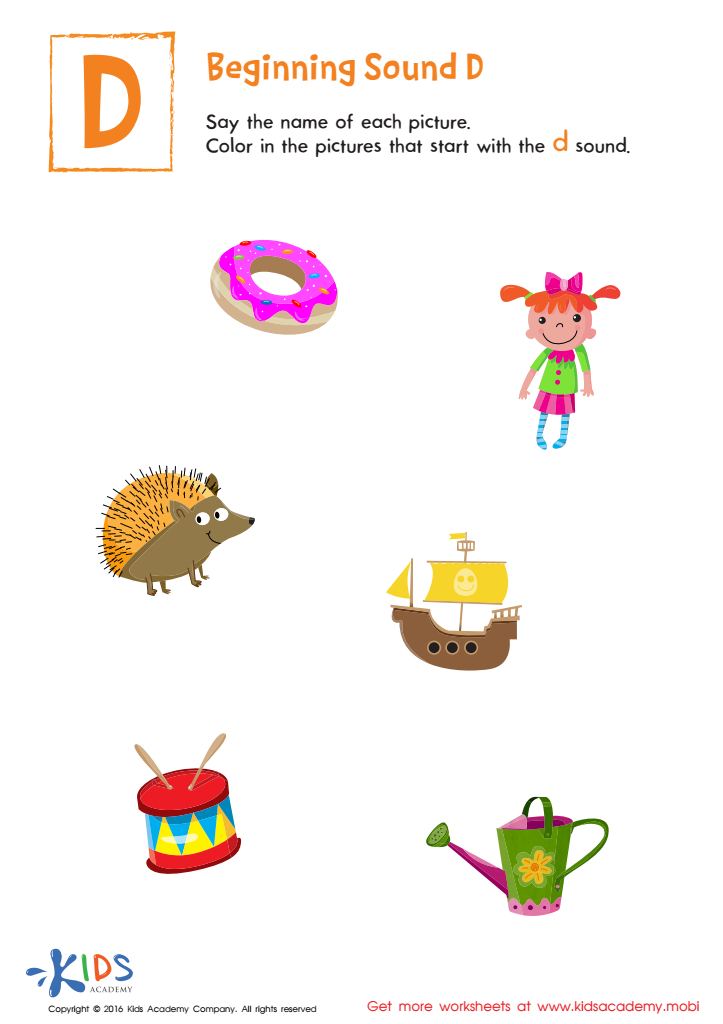

Beginning Sound D Worksheet
Reading readiness is a crucial developmental phase for children aged 5 to 7, as it lays the foundation for their future literacy skills. At this stage, children learn to identify letters, associate sounds with specific letters, and begin forming simple words. Parents and teachers should care about this process because reading readiness directly impacts a child’s academic success and overall confidence. A strong understanding of the alphabet helps children not only in reading but also in writing and developing critical thinking skills.
When children grasp the alphabet, they gain access to a world of knowledge and creativity. Early exposure to reading enhances vocabulary, comprehension, and communication skills that are vital in every subject area. Additionally, fostering literacy at a young age promotes a lifelong love of reading and learning, which can positively influence a child's personal and social development.
Moreover, children who struggle with reading readiness may face challenges as they progress through school, potentially leading to frustration and decreased motivation. Therefore, it’s vital for parents and teachers to actively engage children in letter recognition and phonics activities through games, stories, and interactive exercises, creating a supportive environment that nurtures their reading journey.
 Assign to My Students
Assign to My Students













